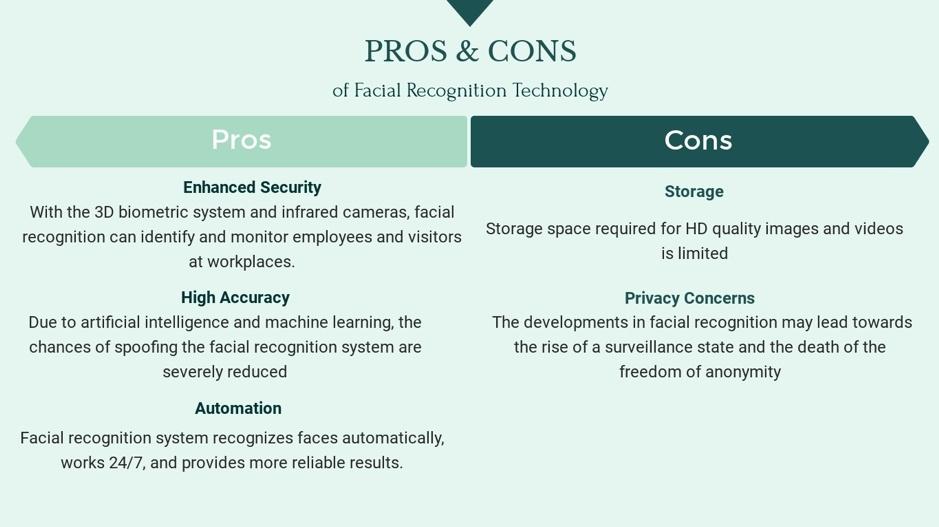pros and cons of police facial recognition
Facial recognition technology (FRT) has sparked a significant debate regarding its use within police forces. Here’s a detailed summary of the pros and cons associated with its implementation based on various sources.
Pros of Police Facial Recognition:
-
Increased Efficiency in Investigations: Law enforcement agencies utilize facial recognition to quickly identify suspects and manage large crowds. It has the potential to speed up investigations and help close cold cases, enabling police to solve crimes more effectively (Aware Blog).
-
Public Safety Enhancements: Many believe that facial recognition technology can help in finding missing persons and improving overall public safety. The general public shows support for its use, perceiving it as a tool that aids police in executing their duties (Pew Research).
-
Better Resource Allocation: By efficiently identifying individuals, police can focus on higher-priority cases and allocate their resources more effectively. This leads to a more proactive rather than reactive approach to policing (Ace USA Blog).
Cons of Police Facial Recognition:
-
Privacy Invasions: One of the most critical concerns surrounding facial recognition technology is its potential to violate individual privacy rights. Many fears that the widespread deployment of this technology can lead to unwarranted surveillance and a society where personal freedoms are compromised (ITPro).
-
Accuracy and Bias Issues: The effectiveness of facial recognition systems can be undermined by issues of accuracy, particularly concerning different demographic groups. Studies have shown that these systems may have biases related to race, age, and gender, potentially leading to misidentifications and reinforcing systemic inequalities (Pumphey Law Firm).
-
Lack of Transparency: There is often a lack of clarity regarding how frequently police use facial recognition technology and the protocols surrounding its use. This opacity can exacerbate public distrust and concern regarding the potential for misuse (TechTarget).
-
Societal Implications: Beyond individual rights, there are broader societal implications of deploying facial recognition by police. The technology raises ethical questions about the kind of society we want to live in, where constant monitoring becomes the norm (Bipartisan Policy Center).
In conclusion, while police facial recognition technology presents significant advantages in terms of efficiency and public safety, it also raises profound concerns regarding privacy, bias, and transparency. These complexities highlight the need for careful consideration and regulation surrounding its implementation in law enforcement contexts.
Sources


Related Questions
Work fast from anywhere
Stay up to date and move work forward with BrutusAI on macOS/iOS/web & android. Download the app today.
